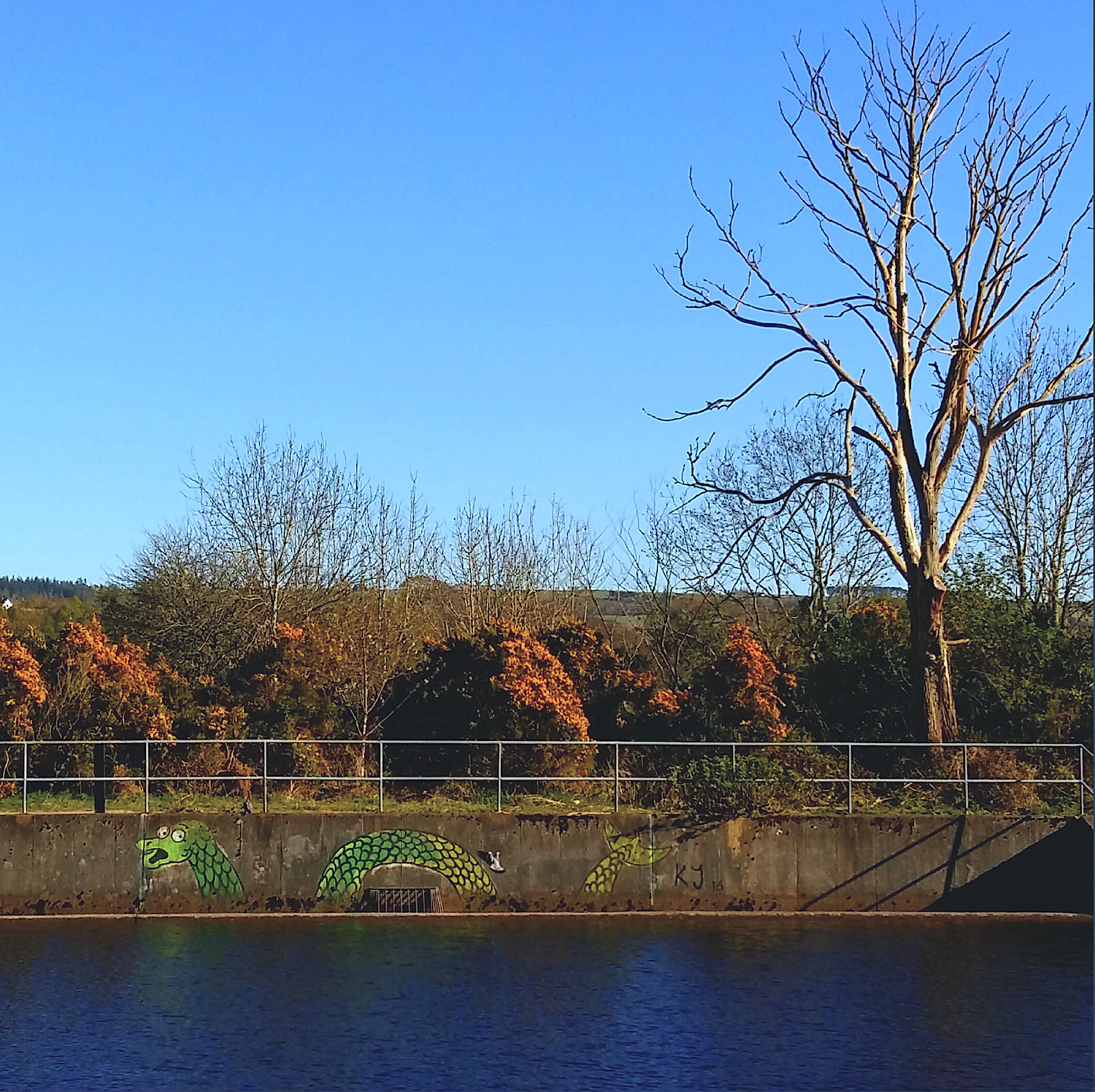I am Dr Evgeny Legedin. In 2011, I left Putin’s Russia because I was an outspoken defender for human rights as one of the leaders of an anti-government youth organisation in Yekaterinburg. I came to the UK as a refugee. I was initially detained until her Majesty’s Government found a use for me as a doctor. I have had to sleep in attics with no central heating, covering myself with boxes and could not share this experience with anybody because I have no family here.
I moved to Scotland as part of my foundation programme. For me, this was no accident as it is for many trainees. I came here after I read Sir Walter Scott’s novel, The Legend of Montrose, and I drew many positive parallels between Scots and Russians. Since then, it is my great sadness to learn that many students and doctors really do not want to be here, and often cry when they find out that they are working in Scotland. Furthermore, I understand that psychiatry is a profession in crisis with a severe shortage of consultants and trainee doctors. I applied to be here because this profession means everything to me.
In 2017-2019 I was doing foundation programme (FY2) and core training (CT1) in Adult Psychiatry and I am currently working as Second Year Foundation doctor in Adult Psychiatry in one of the Scottish Health Boards.
In 20 months working in psychiatry, I was frustrated to see the people experiencing a first episode of psychosis admitted again and again. I was constantly reflecting on what we could do to prevent relapses. In Autumn 2018, the results of a 19-year study on the use of an Open Dialogue approach from Finland were published. In this study, doctors in Western Lapland achieved higher remission rate and high re-employment in comparison to the rest of Finland and the developed world at large. It grabbed my attention as quite a promising approach in treatment, based on family intervention and targeted use of benzodiazepines and neuroleptics. I presented this study to a journal club in psychiatric Hospital and I’ve attended a one-day workshop in London, organised by Open Dialogue UK. I heard about a dozen trusts, where some of the teams apply principles of Open Dialogue and a randomised-controlled study on Open Dialogue has started in this year in the UK. The relatives and a representative of a patients’ organisation attended this workshop in London, asked the same question; “when this treatment will be available in their Trusts”?
In 2019 important issues regarding antidepressants were being discussed in medical journals, including the NICE guidelines update regarding protracted and severe withdrawal effects. Studies on the increased risk of suicides and Alzheimer disease on antidepressants were published as well. I was tweeting about these topics, providing links to research papers.
Loren Mosher on 2-year outcomes of #Soteria Project: “Our data indicate that antipsychotic drugs need not be used routinely with newly admitted schizophrenics if a nurturant, supportive psychosocial environment can be supplied in their stead.”
DOI: 10.1176/ps.29.11.715— Dr Evgeny Legedin (@DrEvgenyLegedin) February 22, 2020
In January 2020, senior colleagues informed me about three letters the Health Board had received. These letters came from four fellow psychiatrists; professionals whom we might assume would be compassionate, broad-minded, caring and reflective – particularly as one was Professor Linda Gask, a retired psychiatrist and emeritus professor of primary care psychiatry, one was Dr Samei Huda, a consultant psychiatrist in Manchester highly active on Twitter and the author of a recent book on the ‘medical model’. None of the four psychiatrists involved had informed me of their complaints.
The route of the complaints to my employers was complex, but the President of the Royal College of Psychiatrists received the complaints, and passed them on to the Dean of the Royal College, with the comment that; “A senior psychiatrist contacted me to say that this trainee is posting things that are factually inaccurate and potentially harmful”. The substance of the complaint (from Professor Gask) was that I was tweeting “unconventional views about mental health”, was “receiving a great deal of support from prominent antipsychiatry people”, and that I was “linking academic psychiatry and Hitler’s Nazi policies”.
What I had actually said was “Since Hitler’s murderous quest for genetic ‘purity’, academic psychiatry established that heredity and genetics are huge factors in schizophrenia risk. But the recent study, which looks at the entire population of Denmark, shows that poverty plays a significant role” (that tweet has now been deleted).
Dr Huda wrote to my employers saying “Someone needs to speak to him about his irresponsible use of twitter”, because I had compared the “medical model” of mental disorders with a crumbling “house of cards” and quoted the famous saying of Diderot/Lincoln “You can deceive some of the people all of the time…” (again, following instructions, I regrettably deleted this tweet).
In mid-March 2020 my locum agency informed me that medical staffing of my hospital refused to renew a contract from 1 April due to these “multiple complaints”.
I am aware of risks associated with drugs but that does not mean that I refuse to prescribe drugs. And I have conversations at length greatly with the consultants who like to use medications to treat patients. I am merely aware that there is a risk of overtreating patients and this is something that concerns me.
Every year thousands of medical students go through and we explain to them the risks associated with certain drugs. Why is it now when I am saying that maybe my colleagues are underestimating those risks, I’ve been pulled up with these complaints?
The views that I have on medicine are a production of my extracurricular reading that I do every evening to become a better psychiatrist. I try to ensure that I am aware of issues that I believe some other doctors are not aware of.
The views I have of psychiatry may not be mainstream, but they are shared by a substantial number of my colleagues – by psychiatrists from the Critical Psychiatry Network and by colleagues from other professions also doing clinical work within the NHS.
Researching treatment practices from other NHS Trusts, reading papers, communicating with the Critical Psychiatry Network within a mainstream system is not a crime. All of this is designed to improve our practices and ensure that we are not making mistakes. And history tells us that mistakes can be made.
I have not committed a crime by suggesting that there are “unconventional views about mental health”; that’s simply true. There really is no shame in pointing out that poverty has a more significant role in the origins of mental health problems than genetics. It is not a crime to receive “a great deal of support” from colleagues who advocate for reform of our mental health care systems. Psychiatry and psychology have well-known links to Nazism and eugenics, and it is not only not a crime to make this point, it is absolutely necessary to ensure we learn from history.
While doing these things, I am a safe worker within the NHS. I review the patients, I manage the patients in clinic, I discuss with patients different practices and different methodologies.
As far as I am concerned, my actions were no crimes. The real crimes in the NHS are chronic underfunding, a lack of staffing, tribalism, bullying and poor treatment of patients.
Although the Medical Director has now overturned this decision and renewed my employment, as there were no issues with my clinical skills, I am very concerned that senior, powerful, psychiatrists are trying to silence those who are vocal regarding psychotropic medications, and psychiatry’s ’medical model’. These issues can’t be ignored. Academic Psychiatry should acknowledge when new research raises serious issues (like withdrawal or increased suicidality from antidepressants) and move forward, changing practice. Somehow the situation resembles for me totalitarian tendencies in Putin’s Russia.
***





So exponentially tragic that empathetic and empowering methods for healing for mental distress are vehemently vilified. Myself with a friend ran public film evenings to educate in our city on Healing Homes of Gothenburg, Sweden, Open Dialogue as you mentioned of the far north of Finland, and two other Daniel Mackler documentaries along with two powerful short films from the Recovery Learning Community.
The result of this as well as my efforts to protect myself from being systematically destroyed by side effects, and these are for example, the fact, as published in the NZMA, the New Zealand Medical Journal that there is I quote the title “Premature mortality in adults using NZ psychiatric services” URL : http://journal.nzma.org.nz/journal/127-1394/6126/ (where a significant gap in survival is demonstrated.) as well as pursuing new released information on side effects e.g. from ‘Randomized Controlled Trial Confirms that Antipsychotics Damage the Brain ‘ by Peter Simons, academic researcher in psychology (see it in madinamerica.com), the result of this exact type of information being presented by me to my psychiatrist(s) has been bundled up and labelled a psychotic symptom as I dangerously harbour “thoughts of persecution about psychiatry.”
Now the road ahead resembles a minefield as I seek to assert my Right to Informed Consent is exploited and my Right to Freedom from Experimentation is being artificially demoted as my “lack of insight” conveniently for whom and for what? I once thought I could believe in Human Rights as a factor available by common-sense for every-one without the potential to represent a threat because you require them. My Right to Respect is diminished and minimized, I struggle to develop a trust with psychiatry, but for articles like yours that ensure public safety, as far as I am concerned.
Thank you, and I wish you the best, also.
Donna.
Greetings from a fellow critical psychiatrist. I think Mad in the UK and Mad in America should join forces to get some good lawyers who can represent people like you. So the next time people like Huda and the establishment wish to use their unethical practices to silence critics, they can be taken to Court. David Pilgrim and Anne Rogers have explained the sociology of the psychiatry professions in their book ‘A Sociology of Mental Health and Illness’, specifically Chapter 7, ‘Mental Health Work and Professions’. The two key methods used by the psy- professions in a neo-Weberian framework are that of Professional Dominance and Social Closure – one principle is professionals exercise power and dominance over new recruits, you can get through training only through submission and deference in earlier junior days, as trainees are dependent on their seniors for career progression.
Thank you so much for standing up for what you believe. Even although there is a growing number of people, including some psychiatrist, who would like to change from a dominant medical model we are seeing psychiatric drug prescriptions rise in Scotland all the time. There is little or no alternatives to first episode psychosis. I presented Open Dialogue to the leadership team of one of Scotland’s NHS Boards about 5 years ago, and was simply and categorically told by the associate medical director – “well we wont be doing that here”. He also quite brazenly admitted to knowing nothing about OD. A unilateral decision made just like that. I’ve never forgotten that experience, and it has only made me more determined to challenge what feels like a dictatorship at times. We need more people like yourself, honest and relentlessly trying to bring psychiatry in to today’s world, not yesterdays, where it firmly sits. Peoples lives are being ruined by overuse and misuse of psychiatric medications.
Dear Evgeny,
I would like to comment this from a Finnish perspective. I have worked as a senior in the fields of adolescent and adult psychiatry, trained as an adolescent psychotherapist and family therapist and still learning. I have been fortunate, because my family therapy training included the open dialogue model and I also have worked with a nurse who has been a part of the original team Your article is referring to. I am writing this at home and I can not read the article at this time, so I am just stating here some things I have experienced.
First I would like to congratulate You for publishing the same problem that makes me sad and sometimes desperate. The mental health clinics are devalued, understaffed and thus the professionals are exploited. Our culture still keeps a stigma over this one specialty among many medical specialties. How can this result in helping broken minds heal? I would like to go on about the school system too.
The first time acute onset psychotic episodes in schizophrenia that we can diagnose and treat are a very rare occasions. Most patients have prodromal symptoms for years befote the psychosis and the psychosis goes undetected for a long time if the patient is not expressing thoughts that are obviously mad. Psychotic symptoms sometimes can dissolve without neuroleptics when there is no genetic burden, symptoms have an acute onset, patient has a supportive family system and there is no substance abuse. This is very rare and we can not count on that we know for sure. There are also risks in giving a patient large doses of benzodiazepines for weeks or months. And, quite frankly, having the resources we do in the world it is not possible to have such a close working relationship with all the patients that they would feel understood and that we as a team would look for his/hers best interest all the time. When this trust is created, the patient will give us his/hers support. That is helpful if we want to minimize the use of neuroleptic medication.
I try hard to practice the open dialogue everyday, with patients, colleagues and this is what I am trying to do now. I have found it very useful and I am happy it is still taught here in Finland. The views You expressed here about medication are often discussed again and again – that is how I found Your post, in Finnish psychiatrists facebook group. At the moment in Finnish hospitals, first episode psychosis are treated with neuroleptics unless the patient does not tolerate any. Have You ever considered working in Lapland and seeing for yourself the methods that are used?
Thank you.
‘Every year thousands of medical students go through and we explain to them the risks of certain drugs’. —
This is of utmost importance in every field of Medical Practice. It is of paramount importance in the prescribing of psychotropic drugs.
Prescribers appear to be vulnerable to not having had the opportunity to recognise the potentially overwhelming intensity of SSRI/SNRI and other Antidepressant-induced AKATHISIA. (Even where SSRIs have been given to a none-depressed patient).
Acute, intense akathisia is vulnerable to misdiagnosis as S.M.I. (Severe Mental Illness).
I have seen intense, overwhelming SSRI induced akathisia misdiagnosed as “psychotic depression” and the patient – (with no mental health condition, and who was not previously depressed) – detained and receive a cascade of neuroleptic and psychotropic drugs, as the serial ADRs were sequentially regarded as indicative of deteriorating “mental illness”.
Denial that “second generation antipsychotics” can cause tardive dyskinesia was discomforting.
Now, after more than half a century of studying and practising medicine, I have just read reports of prescription-“Rx”-induced Respiratory Dyskinesia, and hence increased vulnerability to respiratory disease/pneumonia.
I had been taught about the adverse neurological drug reaction (ADR) of occulo-gyric crisis as medical student. I was not taught about akathisia, even though I elected to undertake additional undergraduate psychiatry commitment as a medical student.
I am saddened to read of your adversity:
“Sometimes, when fortune scowls most spitefully, she is preparing her most dazzling gifts”: W.S. Churchill.
Well done for publishing this.
I hope it gets spread widely.
This is utterly disgraceful and shows the deeply unpleasant and aggressive nature of bio-psychiatrists when under threat.
Dear Evgeny
I admire you because you are brave and courageous. To speak out honesly about some of the practices within psychiatry is as you know dangerous to your career and wellbeing. Yet you do speak out and I support and congratulate you. Yes the culture within some parts of psychiatry is akin to being watched by the KGB. Complaints lodged against you in a sinister manner rather than in a transparent manner designed to engage with your arguments and discuss the issues like adults.
I follow you on Twitter and I wish you well. John McCormack